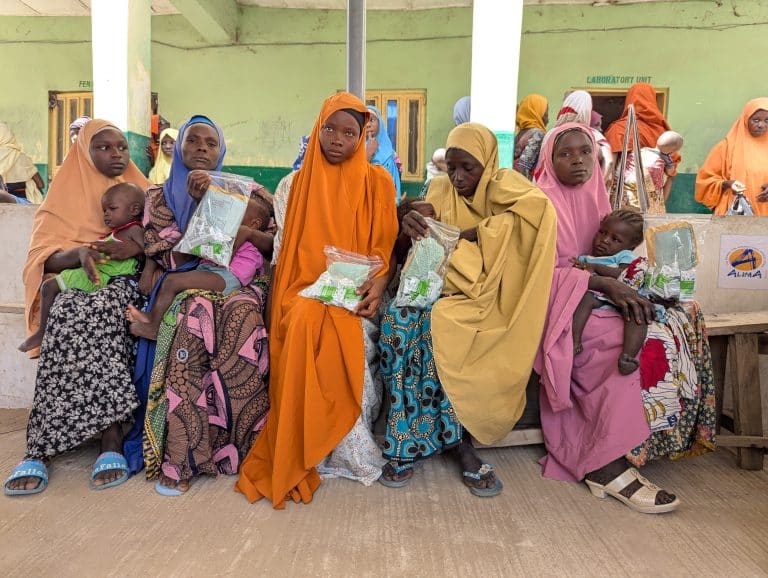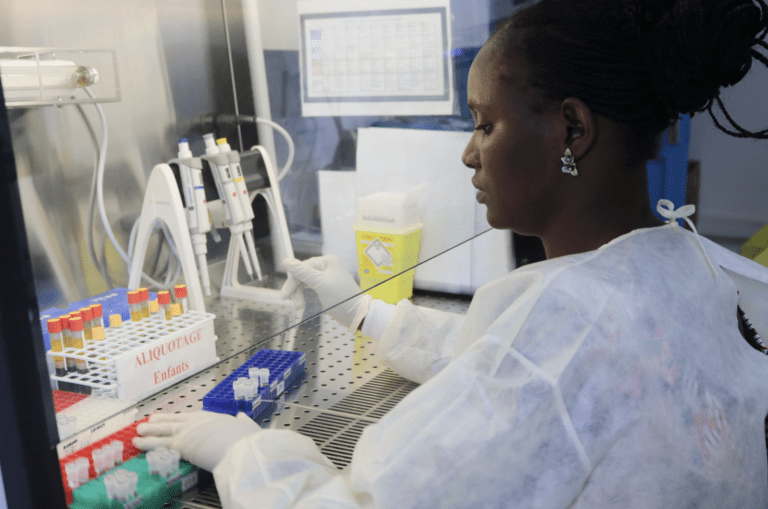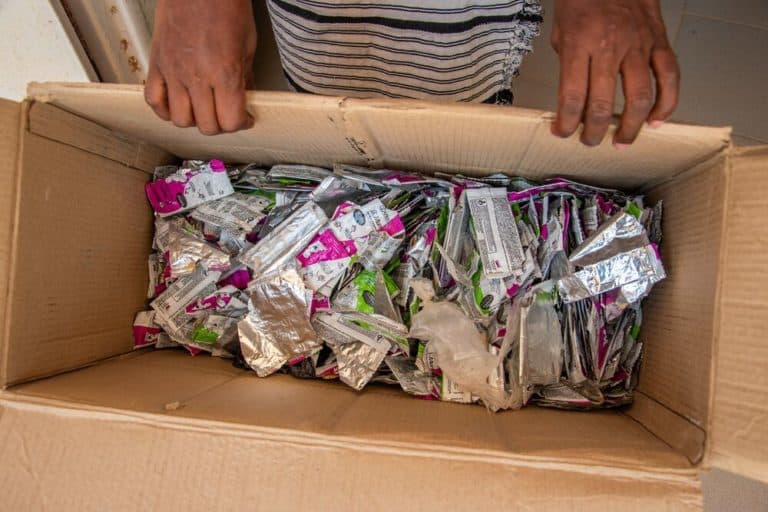INTEGRATE Project – Fighting against Lassa Fever
Lassa fever is a severe, often fatal viral disease that mainly occurs in West Africa. Its transmission is facilitated by food and materials contaminated by rodents and through direct human-to-human transmission via bodily fluids.
Due to its epidemic potential, the WHO has classified Lassa fever as a priority disease requiring urgent research.
➡️ The INTEGRATE project, led by ALIMA and its partners, aims to develop innovative treatments and strengthen clinical research capacity across West Africa.
Humanitarian context and challenge
A deadly and underdiagnosed virus
Lassa fever is a major health threat, particularly in Nigeria, Benin, Guinea, Liberia, Sierra Leone, and Togo.
Why does this matter?
- Non-specific symptoms (fever, diarrhea, headaches), making the diagnosis complex.
- The virus acts quickly and can become fatal in under two weeks after the first symptoms show.
- The only available treatment (Ribavirin) has uncertain effectiveness, and its toxicity raises concerns.
➡️ The INTEGRATE project responds to these challenges by combining clinical research, medical capacity building, and community outreach.
ALIMA and the INTEGRATE consortium in action
💡 An ambitious research project to improve Lassa fever management
INTEGRATE is an international consortium of 15 research institutes, health institutions, and humanitarian organizations from 10 countries.
This project is coordinated by ALIMA and the CORAL (Clinical and Operational Research Alliance) platform, in collaboration with the Bernhard Nocht Institute for Tropical Medicine (BNITM) and the world’s leading Lassa fever treatment centers – the Irrua Specialist Teaching Hospital (ISTH) and the Federal Medical Center Owo (FMCO) in Nigeria.
📅 Project duration: 2023 – 2028
🌍 Areas of intervention: Nigeria, Benin, Guinea, Liberia, Sierra Leone, Togo.
🔹 Establishing an innovative clinical trial
🔬 Goal: develop safer and more effective treatments
- Creating an international clinical trial platform that meets international scientific and ethical standards.
- Testing new drug candidates in several specialized centers.
- Establishing clinical study sites in West Africa.
📌 The trials will be conducted at the largest Lassa fever treatment centers in Nigeria, as well as in Benin, Guinea, and Liberia.
➡️ A major milestone toward developing adapted and accessible treatments.
🔹 Strengthening clinical research capacity in West Africa
🏥 Training and equipping hospitals and labs
- Installation of new research and diagnostic infrastructures.
- Training of researchers, doctors, and laboratory technicians in clinical trial management.
- Development of doctoral and master’s programs for local researchers.
- Creation of a multi-country research network in West Africa.
📌 INTEGRATE relies on a sustainable knowledge transfer, empowering local institutions.
➡️ A strategic investment to ensure an effective response to future outbreaks.
🔹 Raising awareness and countering misinformation
📢 Community outreach to improve prevention and early detection
- Destigmatizing Lassa fever by explaining how it is transmitted and treated.
- Fighting against false information surrounding clinical trials.
- Working with community leaders to promote best health practices.
📌 INTEGRATE mobilizes experts, researchers, and local actors for a sustainable impact.
Frequently Asked Questions (FAQs)
- It causes a rapid health deterioration in affected individuals.
- It is often diagnosed too late, making treatments ineffective.
- In the event of an outbreak, it can spread quickly.
- Testing new treatments for Lassa fever.
- Strengthening clinical research capacity in West Africa.
- Raise awareness in communities to better prevent and treat the disease.
The initiative is funded by the EDCTP3 program of the European Union, under the sponsorship of ISTH and ANRS-Emerging Infectious Diseases.
On the ground
Related news

NutriVax: Integrating Nutrition and Vaccination to Save Children’s Lives in Nigeria
Every year, millions of children in Africa are trapped in a vicious cycle of malnutrition and infectious diseases. But what if we could fight both

Breakthrough in Ebola Vaccination: Five-Year Immunity Achieved After Injection
A decisive new step has been taken in the fight against the Ebola virus. According to a PREVAC study conducted in Guinea, the immunity conferred

The Plastik Project Revolutionizing Medical Waste Management in Burkina Faso
The waste of two essential items in the healthcare and nutritional response in sub-Saharan Africa poses significant environmental pollution. How can their impact be minimized?


